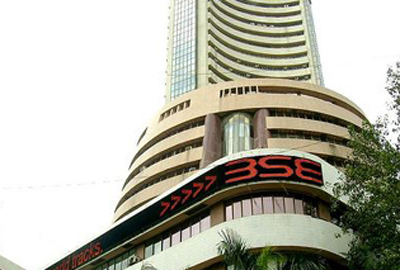Thursday, 26 March 2015 16:52
 MUMBAI: Indian shares fell more than 2 percent on Thursday to a more than 10-week low on worries foreign investors, whose ownership of domestic shares have hit a record, may trim positions on risk aversion after Saudi Arabia launched air strikes in Yemen.
MUMBAI: Indian shares fell more than 2 percent on Thursday to a more than 10-week low on worries foreign investors, whose ownership of domestic shares have hit a record, may trim positions on risk aversion after Saudi Arabia launched air strikes in Yemen.
Foreign flows have been the back bone of a record-setting rally in Indian shares since last year on Modi government’s promise of reform led economic revival, pumping in $ 16.1 billion in 2014 and $ 5.8 billion so far this year.
That has brought foreign ownership of Indian shares to the highest ever, making the country the most overweight it has ever been among emerging market funds.
As a result, any fears of exits can have a big impact on shares, especially as an expected pick up in earnings growth is taking more time, although there has not yet been any big foreign selling so far.
“India has been a big beneficiary of foreign flows. We have seen six straight quarters of bull run,” said Pankaj Murarka, head-equities at Axis Mutual Fund.
The uptick in corporate profits has been pushed back by a few quarters as the real economic growth is more protracted and gradual, he added.
The benchmark BSE index fell as much as 2.6 percent and the NSE index declined as much as 2.4 percent to their respective lowest intraday level since Jan. 14. The NSE ended 2.21 percent, while BSE closed down 2.33 percent.
Blue chips with heavy foreign institutional holdings led decliners, after Saudi Arabia and Gulf region allies launched military operations including air strikes in Yemen on Thursday to counter Iran-allied forces besieging the southern city of Aden where the US-backed Yemeni president had taken refuge.
Foreign investors’ interest in India was near a short-term peak, CLSA said in a note on Tuesday after interacting with 80 investors in the United States, adding several investors appeared to be “seriously re-evaluating” positions as they sit on hefty positions.
Overseas investors collectively held 47 percent of Indian stock market’s free float at the end of December, Bank of America said in a report last month.
India, widely considered as the dark horse among emerging market, has underperformed in March versus other emerging market rivals.
MSCI India is down 5.9 percent in US dollar terms compared with a 2.3 percent decline in MSCI emerging market index.
The index currently traded at around 18 times of one-year forward earnings, near the 18-20 times levels that had previously triggered retreats in shares.
Copyright Reuters, 2015




























